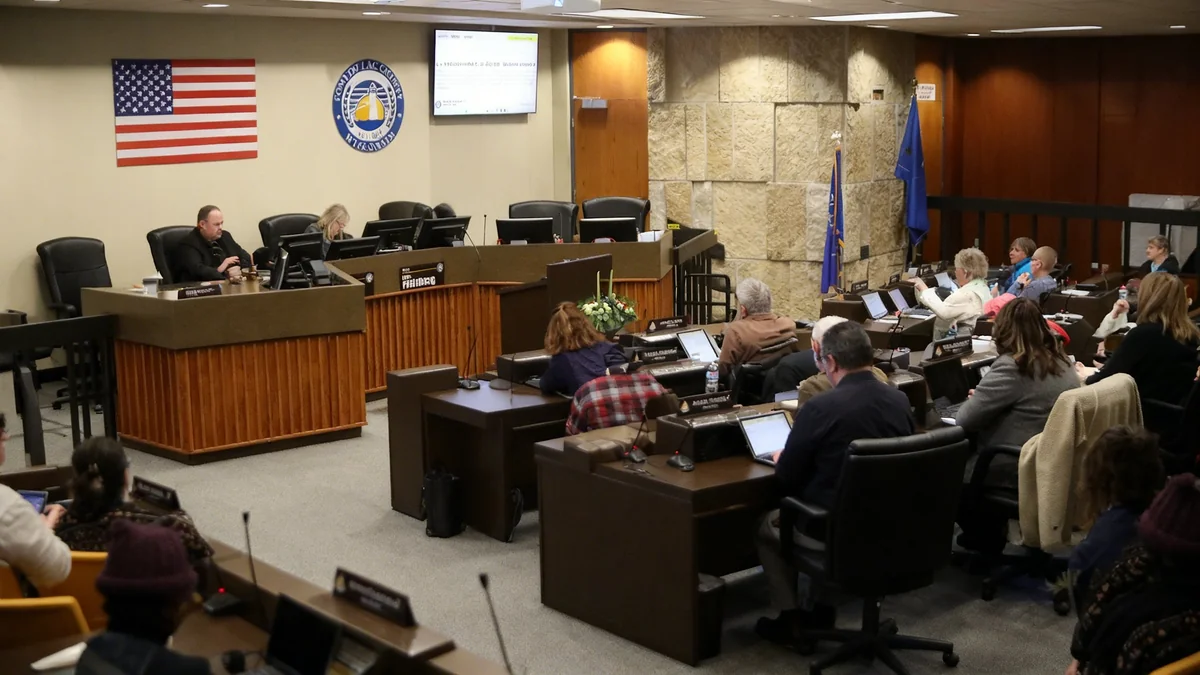Post-hardcore band Thursday has publicly criticized Spotify for hosting recruitment advertisements for U.S. Immigration and Customs Enforcement (ICE). The New Jersey-based group released a statement on Wednesday, October 16, urging Spotify to remove all ICE recruitment ads from its platform. They also encouraged their fans to join the protest.
These controversial advertisements, which reportedly offer a $50,000 signing bonus, began appearing this week. They target users on Spotify's lower-tier pricing options and aim to recruit new ICE agents. The campaign has led to significant backlash, especially given ongoing criticism of U.S. immigration policies.
Key Takeaways
- Thursday, a post-hardcore band, called on Spotify to remove ICE recruitment ads.
- The ads offer a $50,000 signing bonus for new ICE agents.
- Spotify defended its decision, stating the ads do not violate policies.
- The incident has led to protests from users and artists, including app deletions.
- This is the latest controversy for Spotify regarding platform ethics and content.
Band Urges Spotify to Remove Ads
Thursday, known for their politically engaged lyrics and independent approach, became one of the most prominent independent acts to speak out. In their statement, the band emphasized their solidarity with the broader independent music community. They called for collective action against the streaming giant.
"Thursday is an independent band and we join the wider independent musical community in calling upon Spotify to remove any and all ICE recruitment advertising from its platform," the band stated. "A single voice is tiny but collective action is mighty, so please join us in publicly asking Spotify to remove all ICE advertising immediately."
The band's message highlights the power of unified voices in influencing corporate decisions. They specifically asked fans to echo their demand for the immediate removal of these advertisements.
Fact Check
The reported signing bonus for new ICE agents in the controversial Spotify ads is $50,000. These ads are primarily shown to users who do not subscribe to Spotify's premium, ad-free tiers.
Spotify's Response to Criticism
Despite the growing public outcry, Spotify has defended its choice to keep the ICE recruitment ads active. The company issued a statement to Newsweek addressing the controversy. According to Spotify, the advertisement is part of a wider campaign by the U.S. government.
"This advertisement is part of a broad campaign the US government is running across television, streaming, and online channels," Spotify stated. The company added that the content of the ads does not violate its advertising policies. They also mentioned that users can provide feedback on ads through a thumbs up or thumbs down option to manage their ad preferences.
This response has not satisfied many users and artists. Critics argue that the company is sidestepping the ethical implications of hosting such content. They believe that providing a simple feedback mechanism is insufficient for a serious issue.
Public Reaction and User Protests
The controversy has led to significant public reaction. Social media users have reported deleting the Spotify app as a form of protest. A growing number of artists are also openly condemning the platform. This reflects a broader dissatisfaction with Spotify's policies and its role in content moderation.
The band Thursday's music, including their recent independently released singles, remains available on Spotify as of press time. This suggests that while they are vocal in their protest, they have not yet pulled their content from the platform.
Background on ICE
U.S. Immigration and Customs Enforcement (ICE) is a federal law enforcement agency under the Department of Homeland Security. Its primary missions include enforcing immigration laws, investigating transnational crime, and ensuring border security. The agency has faced significant criticism in recent years regarding its enforcement practices and policies, particularly under previous administrations.
Broader Ethical Debates for Streaming Platforms
This incident is the latest in a series of controversies for Spotify. Earlier this year, several artists removed their music catalogs from the platform. This protest was against CEO Daniel Ek’s investments in military technology through his company Prima Materia. These events have reignited long-standing debates within the music industry.
Key issues include artist compensation, platform ethics, and the complex intersection of technology and politics. The decisions made by major streaming platforms like Spotify have significant implications. They affect artists, users, and the wider social landscape.
The debate extends beyond specific ads. It touches upon the responsibility of tech companies regarding the content they host. It also questions their financial investments and their impact on society. As digital platforms become more central to daily life, their ethical obligations are under increasing scrutiny.
The Role of Independent Artists
Independent artists often play a crucial role in bringing these ethical concerns to the forefront. Unlike major label artists who might have contractual obligations, independent acts have more freedom to voice their opinions. Thursday's stance exemplifies this. Their call for collective action highlights how artists can leverage their platforms to advocate for social and political causes.
- Artist Compensation: Many artists believe streaming royalties are too low.
- Platform Ethics: Concerns about the types of advertisements and content platforms host.
- Tech and Politics: The blurring lines between technology companies and political or military interests.
These discussions are likely to continue as streaming services grow in influence. The actions of bands like Thursday contribute to a broader conversation about corporate responsibility in the digital age.




